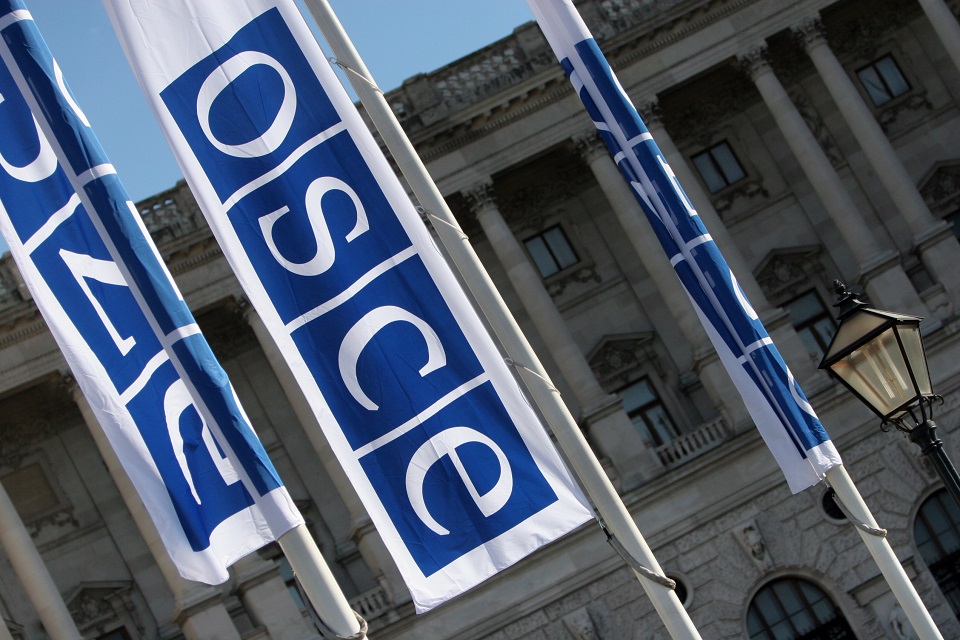Environment is yet another casualty of Russia’s war: UK statement to the OSCE
Nick Ryder (FCDO) highlights the appalling environmental damage caused by Russia's war in Ukraine, and efforts needed to rebuild Ukraine and its environment.

Thank you Mr Chair. Good morning from London. I would like to thank the Secretary General and the three panellists for their interventions. It is right that the OSCE continues to focus on this topic. Climate change remains an existential threat to our shared environment.
Mr Chair, as Mr Fedorenko, the Ukrainian Deputy Minister of Environmental Protection and Natural Resources has so eloquently set out, the environment is yet another casualty of Russia’s invasion of Ukraine. We have seen appalling environmental damage to Ukraine, such as degradation and pollution of land and water, which will take decades to remedy. Russia’s reckless attacks on nuclear facilities risk a catastrophe that could cause continent-wide contamination.
Russia is weaponising energy to support its illegal war and we cannot let it succeed. Energy should never be used as a tool of political coercion. Many countries have now recognised Russia as an unreliable supplier and are limiting their consumption of Russian hydrocarbons which are helping to fund Putin’s war machine. This is why the UK plans to phase out imports of Russian oil by the end of this year. Reducing our collective dependence on Putin’s oil and gas has a practical as well as moral imperative.
Russian forces have destroyed city after city in Ukraine. Helping to rebuild the country and its natural environment will be one of the great tasks for our generation. The UK and our allies will continue to make substantial financial and economic support available to Ukraine to strengthen the resilience of its economy. The UK calls upon the international community to put the principles of environmental protection and sustainable, low carbon development at the heart of this reconstruction effort.
Mr Chair, the brutal attacks in Ukraine have shown the environmental damage that militaries can do. But even militaries at peace can have significant environmental impact. In the UK for example, defence accounts for 50% of central government emissions. In future, our armed forces will embrace the green energy transition, trialling new types of vehicles, fuels standards, and energy storage. Our defence ministry’s Climate Change and Sustainability Strategic Approach report sets out how we will do this.
Mr. Chair, I wish to conclude by highlighting again the importance of this topic. As we have seen in our own region, including recently in Central Asia, climate-related disruptions risk straining existing international security arrangements, creating new geostrategic flashpoints, and raising the potential for further inter-state military competition and conflict.
Finally, we once again call on Russia to cease all hostilities and immediately, completely and unconditionally withdraw all of its troops and military equipment from all of Ukraine. Wars not only damage the environment but they also divert attention and resources away from addressing existential climate challenges and break down the cooperation needed to address them.